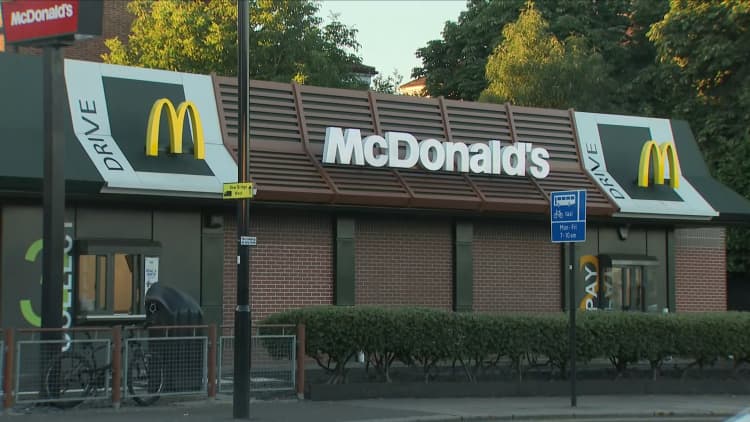Beyond Meat's rival Impossible Foods said Wednesday it will sell its plant-based burger in grocery stores in September after the Food and Drug Administration approved its key color ingredient.
The regulator said it has cleared Impossible's use of soy leghemoglobin — or heme — as a color additive, clearing the way for the maker of imitation meat to start selling its products in grocery stores.
Impossible genetically engineers yeast to create heme, the iron-containing molecule that gives meat its taste and aroma.
The New York Times reported in 2017 that the FDA was concerned about the safety of heme, given that it had never been consumed by humans. Last year, the FDA deemed soy leghemoglobin "generally recognized as safe." But in order to sell its uncooked vegan burgers in grocery stores, Impossible needed the FDA's approval to use the ingredient as a color additive.
"We've been engaging with the FDA for half a decade to ensure that we are completely compliant with all food-safety regulations — for the Impossible Burger and for future products and sales channels," Impossible Foods chief legal officer Dana Wagner said in a statement.
For now, Impossible has been able to distribute its product only by selling it in restaurants. After starting with high-end restaurants, Impossible's plant-based burger has now made its way into fast-food chains like Burger King and White Castle.
If the FDA does not receive any objections from anyone adversely affected by the ingredient in 30 days, Impossible can start selling the product directly to consumers.
Its publicly traded competitor, Beyond Meat, sold $34.1 million worth of products in grocery stores during its second quarter, making up a little over half of its total revenue for the quarter.
The popularity of alternatives that taste and look like meat has largely been driven by flexitarians, people who are trying to reduce their meat intake. According to Nielsen data, 98% of buyers of meat substitutes also purchase meat. More than one-fifth of U.S. households are buying meat substitutes, Nielsen found. Last year's grocery sales of meat substitutes — a category that includes traditional veggie burgers — reached $893 million.
Earlier Wednesday, Impossible announced a manufacturing deal with OSI Group, a large meat supplier that also makes patties for fast-food chains. The deal expands its production capabilities amid soaring demand for the Impossible Burger and supply shortages.



